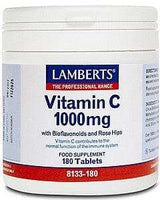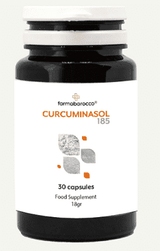
 Instagram
Instagram
Related products
7 healthy Eating Habits


Related products
Introduction
Healthy eating is more than a mere dietary choice; it's a powerful tool for enhancing overall well-being. It's about choosing foods that nourish the body, improve mental health, and reduce the risk of diseases. This approach to nutrition is not just about what we eat, but also how and when we eat. In this comprehensive guide, we delve into seven pivotal eating habits that can significantly impact your health journey. Each habit, rooted in scientific research and expert insights, offers a pathway to a healthier and more balanced life.
The Importance of Healthy Eating
Nutrition plays a crucial role in every aspect of our health. Dr. Emily Smith, a renowned nutritionist, states, "The food we consume acts as the fuel for our body. The quality of this fuel directly influences our physical and mental health, energy levels, and even our emotional well-being." This sentiment is echoed by countless health experts who stress the importance of a balanced diet in maintaining optimal health.
Statistics reveal the profound impact of dietary choices on health. According to a study published in The Lancet, poor diet contributes to more diseases and health-related issues than smoking, high alcohol consumption, and physical inactivity combined. This alarming fact underscores the necessity of adopting healthy eating habits.
An Overview of the Seven Eating Habits
The seven habits we explore in this article are not just about choosing the right foods; they involve a holistic approach to eating. From mindful eating to understanding the body's needs, these habits are designed to improve your relationship with food.
-
Mindful Eating: This habit encourages awareness and enjoyment of food. It's about understanding the impact of food on your body and acknowledging its sources and preparation.
-
Balanced Diet: Central to good health, a balanced diet includes a variety of nutrients essential for the body. It's about creating harmony in your meals with the right proportions of carbohydrates, proteins, fats, vitamins, and minerals.
-
Hydration: Often overlooked, hydration is vital for bodily functions. It's not just about drinking water but also about understanding how different fluids contribute to or detract from our health.
-
Portion Control: This habit is crucial for maintaining a healthy weight and preventing overeating. It's about understanding what a serving size looks like and listening to your body’s hunger cues.
-
Regular Meal Times: Consistency in meal times can regulate metabolism and energy levels. It's about establishing a routine that aligns with your body's natural rhythms.
-
Limiting Processed Foods: Processed foods can be detrimental to health. This habit involves identifying healthier alternatives and understanding the long-term benefits of whole, unprocessed foods.
-
Listening to Your Body: It’s essential to understand and respond to your body's signals. This means eating when you're hungry, stopping when you're full, and recognizing the difference between physical hunger and emotional eating.
Each habit is a step towards a healthier lifestyle. As we delve deeper into each of these habits, remember that the journey to better health is a personal one. As Dr. John Williams, a general practitioner, advises, "Adopting healthy eating habits is not about strict dietary limitations or depriving yourself of the foods you love. It's about feeling great, having more energy, and stabilizing your mood."
Habit 1: Mindful Eating
Definition and Benefits of Mindful Eating
Mindful eating is an approach to food that focuses on awareness and engagement with the eating experience. It involves paying full attention to the sensations, feelings, and physical cues associated with food and eating. Dr. Angela Brown, a dietitian and mindfulness expert, explains, "Mindful eating is about using all your senses to engage with your food. It’s about noticing the colours, smells, textures, flavours, temperatures, and even the sounds of our food."
The benefits of mindful eating are multifaceted. Research published in the Journal of the Academy of Nutrition and Dietetics suggests that this practice can lead to a healthier relationship with food, aiding in weight management, reducing binge eating, and promoting better digestion. By slowing down and being more present during meals, individuals are more likely to recognize their body's hunger and fullness signals, preventing overeating.
Practical Tips for Incorporating Mindful Eating into Daily Routines
-
Eat Without Distractions: Turn off electronic devices and eat away from computers or televisions. This simple act can help you focus on your meal.
-
Chew Thoroughly: Take the time to chew your food slowly. This aids digestion and allows you to truly taste and enjoy your food.
-
Use Smaller Plates: Smaller plates can help in portion control, making you more mindful of how much you eat.
-
Check in With Your Hunger Cues: Before eating, ask yourself if you’re truly hungry. Learn to differentiate between true hunger and eating out of boredom or emotion.
-
Appreciate Your Food: Take a moment to appreciate where your food came from and the effort taken to prepare it. This can deepen your connection to the eating experience.
Case Studies or Examples
Case Study 1: A study conducted at Harvard University followed a group of individuals who practiced mindful eating. Over six months, these individuals reported a significant decrease in stress eating and a more enjoyable eating experience.
Case Study 2: Jane, a 35-year-old teacher, incorporated mindful eating into her daily routine. Within three months, she reported an improved relationship with food, reduced cravings, and a more positive body image.
In conclusion, mindful eating is not just a diet but a way of life. It encourages a deeper connection with food and a more harmonious relationship with our eating habits. As Dr. Brown asserts, "Mindful eating can transform our daily meals into a source of joy and nourishment." By embracing this first habit, you set the foundation for a healthier and more mindful approach to eating.
Habit 2: Balanced Diet
Importance of a Balanced Diet for Health
A balanced diet is crucial for maintaining good health and preventing a range of chronic diseases. This concept involves consuming a variety of different foods in the right proportions to achieve and maintain optimal body weight and robust health. Nutritionist Dr. Laura Green explains, "A balanced diet provides the nutrients your body needs to work effectively. Without balanced nutrition, your body is more prone to disease, infection, fatigue, and low performance."
Studies have shown that individuals who maintain a balanced diet are less likely to suffer from obesity, heart disease, diabetes, and certain types of cancer. A balanced diet also has a significant impact on mental health, with research indicating a strong link between diet and mood.
What are the 7 Parts of a Healthy Diet?
- Carbohydrates: Essential for energy.
- Proteins: Important for growth and repair.
- Fats: Necessary for brain health and energy.
- Vitamins: Vital for immune function and cell health.
- Minerals: Crucial for bone health and fluid balance.
- Fibre: Important for digestive health.
- Water: Essential for hydration and bodily functions.
Components of a Balanced Diet
-
Carbohydrates: Include whole grains like brown rice, quinoa, and whole wheat. They provide energy and should constitute a significant part of your diet.
-
Proteins: Lean meats, fish, eggs, dairy, legumes, and nuts are excellent sources. They are essential for building and repairing tissues.
-
Fats: Opt for healthy fats found in avocados, olive oil, and nuts. These are vital for brain health and energy but should be consumed in moderation.
-
Vitamins: A wide variety of fruits and vegetables will ensure you get enough vitamins. Each vitamin plays a different role in the body, and a colourful plate is often a good indicator of nutritional variety.
-
Minerals: Foods like leafy greens, nuts, seeds, and dairy products are rich in essential minerals like calcium, magnesium, and potassium.
-
Fibre: Whole grains, fruits, vegetables, and legumes are high in fibre, which is vital for a healthy digestive system.
-
Water: Essential for life, water should be a constant in your diet. It’s crucial for every cellular function in your body.
Sample Meal Plans or Food Suggestions
Breakfast: Oatmeal with fresh berries and nuts, alongside a glass of water or herbal tea.
Lunch: Grilled chicken salad with a variety of vegetables, dressed with olive oil and lemon juice.
Snack: A piece of fruit and a small handful of almonds.
Dinner: Baked salmon with quinoa and steamed broccoli, followed by a small serving of yoghurt.
Hydration: Aim to drink at least 8 glasses of water throughout the day, more if you are active or it is particularly warm.
Incorporating each of these components into your daily meals can ensure a well-rounded and nutritious diet. Dr. Green advises, "Remember, a balanced diet isn’t about strict limitations. It's about ensuring your body gets the nutrients it needs while enjoying your meals." By following these guidelines, you can enjoy a diverse, nutritious diet that supports your overall health and well-being.
Habit 3: Hydration
Role of Water in the Body
Water is a fundamental component of the human body and plays a vital role in almost every bodily function. Dr. Sarah Hughes, a hydration expert, explains, "Water is crucial for maintaining bodily balance. It aids in digestion, absorption of food, regulation of body temperature, and circulation of blood." It's also essential for the transportation of nutrients and oxygen to cells and for the removal of waste products.
The body's reliance on water is evident in the fact that a human can survive for weeks without food, but only a few days without water. This underscores the importance of hydration for overall health. Dehydration can lead to various health issues, including fatigue, headaches, skin problems, kidney stones, and in severe cases, can even be life-threatening.
Daily Recommended Water Intake
The amount of water required can vary depending on age, gender, weight, climate, and physical activity levels. However, a general guideline from the NHS suggests that an average adult should aim to drink about 1.6 to 2 litres (about 6-8 glasses) of water per day. This intake should be increased in hot climates or during vigorous physical activity.
It's important to note that water intake doesn't just have to come from drinking water alone. Many foods, particularly fruits and vegetables, have high water content and can contribute to overall hydration.
Tips for Staying Hydrated
-
Start Your Day with Water: Drinking a glass of water first thing in the morning is a great way to kickstart your hydration for the day.
-
Carry a Water Bottle: Having a water bottle with you at all times makes it more likely that you'll drink water throughout the day.
-
Set Reminders: In our busy lives, it's easy to forget to drink water. Setting reminders on your phone or computer can be a helpful prompt.
-
Eat Water-Rich Foods: Incorporate fruits and vegetables like cucumbers, tomatoes, oranges, and melons into your diet. These can help increase your water intake.
-
Alternate Beverages: If you drink coffee or alcohol, follow each beverage with a glass of water to offset the diuretic effect.
-
Monitor Your Urine: The colour of your urine can be a good indicator of your hydration status. Aim for pale yellow.
-
Listen to Your Body: Thirst is an obvious sign of dehydration, but sometimes hunger can also indicate a need for water.
Dr. Hughes emphasizes, "Staying well-hydrated is not just about quenching thirst, it's about maintaining the harmony of your entire body." By implementing these tips and making hydration a daily priority, you can ensure that your body functions optimally, supporting your overall health and well-being.
Habit 5: Regular Meal Times
Importance of Consistent Meal Times
Regular meal times play a critical role in maintaining a healthy lifestyle. Consistency in eating schedules is not just about what you eat, but also when you eat. Dr. Karen Miller, a nutritionist specializing in dietary rhythms, explains, "Eating at regular intervals aligns with our body's internal clock, aiding in better digestion, energy levels, and overall metabolic health."
Adhering to a consistent eating schedule can help regulate blood sugar levels, preventing spikes and crashes that can lead to feelings of fatigue and irritability. It also helps in better nutrient absorption and can contribute to more effective weight management.
The Impact on Metabolism and Energy Levels
The human body thrives on routine. When we eat at regular intervals, our body anticipates and prepares for food, optimizing the digestive process and energy utilization. This regularity can boost metabolism, as the body becomes more efficient in processing and utilizing the nutrients from the food we consume.
Studies have shown that irregular eating patterns can disrupt the body’s circadian rhythms, leading to metabolic disorders such as obesity and diabetes. Regular meal times help maintain these natural rhythms, ensuring that the body's energy levels are stable throughout the day.
Strategies for Maintaining Regular Meal Schedules
-
Plan Your Meals: Planning your meals in advance can help you stick to regular eating times. It also helps in making healthier food choices.
-
Set Alarms or Reminders: In today's fast-paced world, it's easy to lose track of time. Setting alarms or reminders can be a useful tool to keep your meal schedule on track.
-
Listen to Your Body’s Hunger Cues: Pay attention to your body’s natural hunger signals and try to align your meals accordingly, while keeping them at consistent times each day.
-
Avoid Skipping Meals: Skipping meals can disrupt your metabolic rhythm. Even on busy days, try to have a small, healthy snack if a full meal isn’t possible.
-
Be Mindful of Portion Sizes: Eating regular meals doesn’t mean overeating. Be mindful of portion sizes to avoid excessive calorie intake.
-
Consistency Even on Weekends: Try to maintain the same eating schedule on weekends as you do during the week. This consistency helps reinforce your body’s internal clock.
-
Hydrate Appropriately: Proper hydration can help regulate hunger and aid in digestion, which in turn can help maintain regular meal times.
Dr. Miller advises, "While life’s unpredictability can sometimes disrupt our schedules, striving for consistency in meal times can have a profound impact on our overall health." By incorporating these strategies into your routine, you can establish regular meal times that support your body’s natural rhythms, contributing to better metabolic health and energy levels.
Habit 6: Limiting Processed Foods
Health Risks Associated with Processed Foods
Processed foods, often high in sugars, unhealthy fats, and artificial ingredients, pose significant health risks. Regular consumption of these foods can lead to an increased risk of obesity, heart disease, type 2 diabetes, and certain cancers. Dr. Olivia Pearson, a cardiologist with a focus on diet-related heart health, warns, "Processed foods not only lack essential nutrients but also contain elements that can harm your body over time, contributing to chronic inflammation and elevated cholesterol levels."
Additionally, processed foods are typically high in sodium and preservatives, which can lead to high blood pressure and adversely affect kidney function. They also often lack dietary fiber, essential for digestive health.
Identifying and Avoiding Processed Foods
-
Read Labels: Understanding food labels is crucial. Look for a high number of ingredients, especially those hard to pronounce, as an indicator of high processing.
-
Avoid Added Sugars and Salt: Processed foods often contain excessive amounts of added sugars and salt. Check labels for sugar, high fructose corn syrup, and sodium content.
-
Be Cautious of ‘Fat-Free’ or ‘Low-Fat’ Claims: Such products often compensate by adding sugar or salt to enhance flavor.
-
Cook More at Home: Preparing meals at home allows you to control the ingredients and avoid the additives commonly found in processed foods.
Healthier Alternatives to Common Processed Foods
-
Whole Foods: Opt for whole, unprocessed foods like fresh fruits, vegetables, whole grains, lean meats, and nuts.
-
Homemade Snacks: Instead of packaged snacks, try homemade options like fruit salads, nuts, or yogurt.
-
Fresh Ingredients: Use fresh herbs and spices for flavoring instead of relying on processed sauces and condiments.
-
Whole Grains over Refined Grains: Choose whole grain bread, pasta, and rice instead of their white, refined counterparts.
-
Healthy Cooking Methods: Opt for grilling, steaming, or baking over frying.
Dr. Pearson advises, "Limiting processed foods in your diet isn’t about deprivation, but rather about making healthier choices that benefit your body in the long run." By identifying and reducing the intake of processed foods, and substituting them with healthier, whole food options, you can significantly improve your overall health and reduce the risk of chronic diseases.
Habit 7: Listening to Your Body
Understanding Hunger and Fullness Cues
Listening to your body involves recognizing and responding to its natural hunger and fullness signals. Dr. Emily Foster, a specialist in intuitive eating, explains, "Your body has a natural ability to regulate food intake. Understanding your hunger and fullness cues is key to maintaining a healthy weight and relationship with food."
Hunger cues include stomach growling, low energy levels, and feelings of emptiness, signaling it's time to eat. Fullness cues, on the other hand, include a feeling of satiety, a decrease in hunger, and a sense of contentment, indicating it's time to stop eating.
The Importance of Responding to Body Signals
Responding to your body's signals can prevent both under-eating and overeating. Ignoring hunger cues can lead to excessive hunger, often resulting in overeating or choosing unhealthy, quick-fix foods. Conversely, ignoring fullness cues can lead to overeating and discomfort.
Being in tune with these signals promotes a balanced diet and aids in preventing eating disorders. It fosters a healthier approach to eating, where food is viewed as a source of nourishment rather than an emotional crutch.
Avoiding Emotional Eating
Emotional eating involves eating in response to feelings rather than hunger. Stress, boredom, sadness, and even happiness can trigger emotional eating, leading to unhealthy eating habits and weight gain.
-
Identify Emotional Triggers: Recognize the emotions that prompt you to eat and find alternative ways to cope with them.
-
Mindful Eating: Practice mindfulness to distinguish between emotional hunger and physical hunger. Mindfulness can help you break the cycle of emotional eating.
-
Healthy Coping Strategies: Develop healthy ways to deal with emotions, such as exercise, meditation, or talking to a friend.
-
Don't Deprive Yourself: Deprivation can lead to cravings and emotional eating. Allow yourself to enjoy treats in moderation.
-
Seek Professional Help if Needed: If emotional eating is frequent and feels out of control, consider seeking help from a dietitian or psychologist.
Dr. Foster concludes, "Listening to your body is about developing a deeper connection with your physical and emotional needs. It’s a practice that fosters respect and appreciation for your body." By tuning into your body's natural cues and differentiating between physical hunger and emotional needs, you can cultivate a healthy, balanced approach to eating.
Additional Healthy Eating Habits
What are 10 Healthy Eating Habits?
-
Eating a Variety of Foods: Ensuring a diverse diet that includes different food groups for a range of nutrients.
-
Incorporating Plenty of Fruits and Vegetables: Aiming for at least five portions a day to get essential vitamins, minerals, and fiber.
-
Choosing Whole Grains: Opting for whole grains over refined grains to benefit from more nutrients and fiber.
-
Including Healthy Proteins: Focusing on lean meats, fish, legumes, and nuts for protein sources.
-
Limiting Sugar Intake: Reducing consumption of sugary snacks and drinks to prevent energy crashes and health issues.
-
Moderating Salt Consumption: Watching salt intake to help maintain healthy blood pressure levels.
-
Cooking Meals at Home: Preparing your meals allows for better control over ingredients and portion sizes.
-
Practicing Portion Control: Being mindful of portion sizes to avoid overeating, even with healthy foods.
-
Staying Hydrated: Drinking enough water throughout the day for overall health and well-being.
-
Listening to Your Body's Needs: Eating when hungry and stopping when full, and understanding your body’s specific nutritional requirements.
Expansion on Other Beneficial Eating Habits
Besides the core seven habits, incorporating these additional habits can further enhance your diet's effectiveness and your overall health:
-
Meal Prepping: Preparing meals in advance can help maintain healthy eating habits, save time, and reduce the temptation to opt for less healthy convenience foods.
-
Snacking Wisely: Choosing healthy snacks, like fruits, nuts, or yogurt, can provide energy and nutrients between meals without overindulging.
-
Being Aware of Liquid Calories: Drinks like sodas, juices, and alcohol can add significant, often unnoticed, calories to your diet.
-
Balancing Macronutrients: Ensuring each meal contains a balance of carbohydrates, proteins, and fats to keep you full and energized.
-
Eating Slowly: Taking time to eat can improve digestion, help with portion control, and increase enjoyment of meals.
-
Understanding Food Labels: Knowing how to read food labels can help you make healthier choices and avoid hidden sugars, fats, and salts.
-
Using Healthier Cooking Methods: Baking, grilling, steaming, and stir-frying are healthier alternatives to frying.
-
Reducing Alcohol Intake: Limiting alcohol consumption can have numerous benefits for your health, including reduced risk of certain diseases and improved weight management.
-
Trying New Foods: Experimenting with new foods can introduce you to a range of nutrients and make healthy eating more enjoyable.
-
Seeking Professional Advice When Needed: For specific dietary needs or health conditions, consulting a dietitian or nutritionist can provide tailored advice and support.
By integrating these habits into your lifestyle, along with the seven core habits, you can create a comprehensive approach to healthy eating that nourishes your body, satisfies your taste buds, and contributes to long-term health and wellness.
Healthiest Foods and Nutrition
What are the 7 Healthiest Foods to Eat?
-
Leafy Greens: Foods like spinach, kale, and Swiss chard are packed with vitamins, minerals, and fiber.
-
Berries: Blueberries, strawberries, and raspberries are rich in antioxidants, vitamins, and low in calories.
-
Nuts and Seeds: Almonds, walnuts, chia seeds, and flaxseeds are excellent sources of healthy fats, proteins, and fiber.
-
Whole Grains: Quinoa, oats, and brown rice provide essential B-vitamins and fiber.
-
Fatty Fish: Salmon, mackerel, and sardines are high in omega-3 fatty acids, crucial for heart and brain health.
-
Legumes: Beans, lentils, and chickpeas are great plant-based protein sources and are high in fiber.
-
Cruciferous Vegetables: Broccoli, Brussels sprouts, and cauliflower are high in fiber and cancer-fighting compounds.
Detailed Discussion on Nutrient-Rich Foods
These healthiest foods offer a rich array of nutrients:
-
Leafy Greens: High in iron, calcium, potassium, and magnesium, and vitamins K, C, E, and many of the B vitamins.
-
Berries: Excellent source of fiber, vitamin C, and antioxidant polyphenols.
-
Nuts and Seeds: Contain heart-healthy monounsaturated fats, protein, fiber, vitamins like E and B6, and minerals like magnesium and potassium.
-
Whole Grains: Provide complex carbohydrates for energy, fiber for digestive health, and essential minerals.
-
Fatty Fish: Rich source of omega-3 fatty acids, which are essential for brain health, reducing inflammation, and cardiovascular health.
-
Legumes: Offer plant-based protein, soluble fiber, B vitamins, iron, folate, calcium, potassium, phosphorus, and zinc.
-
Cruciferous Vegetables: Loaded with vitamins A, C, and K, and high in fiber, they also contain glucosinolates, compounds that have been shown to reduce cancer risk.
What are the 7 Types of Food You Need to Eat to Stay Healthy?
-
Proteins: Essential for muscle repair and growth.
-
Carbohydrates: Your body’s primary energy source.
-
Fats: Vital for energy, cell growth, and protecting organs.
-
Vitamins: Necessary for immune function, energy production, and bone health.
-
Minerals: Important for bone health, fluid balance, and muscle function.
-
Water: Crucial for every cell to function properly.
-
Fiber: Essential for digestive health and regular bowel movements.
Overview of Essential Food Groups and Their Health Benefits
-
Proteins: Found in meat, fish, eggs, dairy products, legumes, and nuts, they are crucial for the body's repair and growth.
-
Carbohydrates: Foods like whole grains, fruits, and vegetables provide energy and are vital for brain function.
-
Fats: Sources include nuts, seeds, avocados, and fish. They play a key role in hormone production and nutrient absorption.
-
Vitamins and Minerals: A wide range of fruits and vegetables, as well as meat and dairy, are needed to supply these nutrients for various bodily functions.
-
Water: Beyond just drinking water, fruits and vegetables can also contribute to hydration.
-
Fiber: Found in plant-based foods like vegetables, fruits, legumes, and whole grains, fiber is crucial for gut health and preventing constipation.
Incorporating these food groups into your diet ensures a balance of essential nutrients, supporting overall health and preventing various diseases. This holistic approach to nutrition is key to maintaining a healthy and balanced lifestyle.
Incorporating the Habits into Everyday Life
Strategies for Adopting New Eating Habits
-
Start Small: Introduce new habits gradually. For instance, begin by incorporating more fruits and vegetables into your meals, or start practicing mindful eating with one meal a day.
-
Set Realistic Goals: Set achievable goals that are specific, measurable, and time-bound. For example, decide to drink 8 glasses of water daily for a month.
-
Plan Your Meals: Meal planning helps you make intentional and healthy food choices, reducing the likelihood of impulsive eating.
-
Keep a Food Diary: Tracking what you eat can raise awareness about your eating patterns and help you identify areas for improvement.
-
Educate Yourself: Learn about nutrition and the benefits of each habit. Understanding the 'why' behind actions can be a powerful motivator.
-
Cook at Home: Preparing your own meals gives you control over ingredients and helps you stick to your healthy eating goals.
-
Seek Support: Share your goals with friends or family who can offer encouragement and hold you accountable.
Overcoming Common Challenges
-
Time Constraints: For those short on time, simple meal-prepping strategies or choosing healthy, quick-to-prepare foods can be effective.
-
Cost Concerns: Eating healthily doesn’t have to be expensive. Buying in-season produce, opting for frozen fruits and vegetables, and purchasing bulk grains can be cost-effective.
-
Lack of Motivation: Remind yourself of the benefits of healthy eating. Setting small, achievable goals can also help maintain motivation.
-
Temptations: Remove unhealthy temptations from your environment. Having healthy snacks on hand can help combat cravings.
-
Eating Out: When dining out, look for healthier options on the menu, and don’t be afraid to ask for modifications.
Maintaining Healthy Habits Long-term
-
Incorporate Variety: Eating a variety of foods keeps meals interesting and ensures a wide range of nutrients.
-
Be Flexible: It’s okay to indulge occasionally. A flexible approach to dieting is more sustainable than a strict one.
-
Reflect and Adjust: Regularly assess your eating habits and make adjustments as needed. Listen to your body and respond to its changing needs.
-
Stay Informed: Keep up-to-date with the latest nutrition research and recommendations.
-
Make It Enjoyable: Find joy in the process. Experiment with new recipes and enjoy the flavors and experiences that healthy eating brings.
-
Practice Mindfulness: Stay mindful not just about what you eat but also about how and why you eat.
-
Celebrate Successes: Acknowledge and celebrate your achievements, no matter how small, to stay motivated.
Adopting and maintaining healthy eating habits is a journey that requires patience, commitment, and continuous effort. By implementing these strategies, you can make this journey enjoyable and sustainable, leading to a lifetime of good health and well-being.
Conclusion
Recap of the Seven Healthy Eating Habits
This guide has navigated through seven fundamental habits for a healthier lifestyle, emphasizing the integral role of nutrition in overall well-being. The habits discussed include:
- Mindful Eating: Engaging fully with the eating experience and being present during meals.
- Balanced Diet: Consuming a variety of foods in the right proportions to ensure a balance of nutrients.
- Hydration: Prioritizing water intake to maintain bodily functions and overall health.
- Portion Control: Being aware of the amounts of food consumed to prevent overeating.
- Regular Meal Times: Eating at consistent times to support metabolic health and energy levels.
- Limiting Processed Foods: Reducing intake of high-sugar, high-salt, and high-fat processed foods for better health.
- Listening to Your Body: Recognizing and responding to hunger and fullness cues and avoiding emotional eating.
Healthy eating transcends the mere act of dieting; it's a cornerstone of a vibrant and fulfilling lifestyle. The benefits of adopting healthy eating habits extend beyond physical health, encompassing mental clarity, emotional balance, and overall life satisfaction. As you integrate these practices into your life, you may notice improvements in your energy levels, mood, and general well-being.
Remember, the food you consume is the fuel that powers your existence, influencing every aspect of your life. By choosing nourishing foods and developing mindful eating practices, you are not only caring for your body but also honoring your life. In the words of Hippocrates, "Let food be thy medicine, and medicine be thy food." Let this ancient wisdom guide you as you embark on this rewarding journey towards optimal health and wellness.


































 Rated Excellent by 26,523+ Reviews
Rated Excellent by 26,523+ Reviews